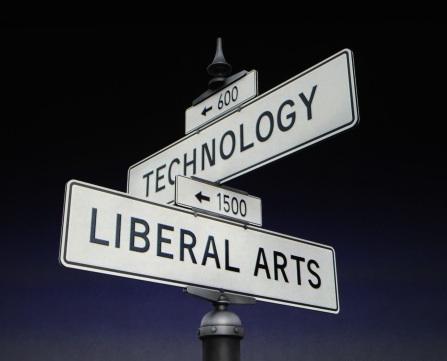
Are we worried about too much Science, Technology, Engineering and Math (STEM) or the death of the humanities – or both? At many universities, including ours, we are having the conversations about making science more accessible to undergraduates in exploratory courses; and we are having the conversations about how science researchers can be better at communicating and creativity. We are also having a troubling conversation about how often a web site needs to be redesigned – yes, six years is way too long!
The following articles from many perspectives highlight the dichotomy between the humanities and sciences in higher education today that, hopefully, will inform higher education in the future.
Two excellent articles outline out the case for the importance of both humanities and sciences.
- Why America’s obsession with STEM education is dangerous by Fareed Zakaria
“A broad general education helps foster critical thinking and creativity. Exposure to a variety of fields produces synergy and cross fertilization. Yes, science and technology are crucial components of this education, but so are English and philosophy.”
- The Lost, Secret History of Reading by Arthur Melzer
“Turning to events internal to the intellectual world, we notice that during the last 150 years the humanities became radically eclipsed, even delegitimized, by the phenomenal success of their great intellectual rival, the hard sciences. The latter have rapidly built up an unprecedented edifice of knowledge. It is not only intellectually or theoretically superior to everything before — precise, systematic, and empirically verifiable — but also superior in its practical utility, generating unimagined new technologies for the improvement of human life. Today scientific knowledge is equated with real knowledge, all the rest seeming like folklore. All modern intellectuals suffer from physics envy. But even the extraordinary rise of modern science cannot adequately explain the current fate of the humanities. Empirical science is competent in the realm of measurable facts, but not in the realm of values. The wisdom of life and knowledge of the self that we desperately need come, not from scientific data, but from reflective accounts of the inner experience of being alive as a human being, and especially of being most fully, intensely, and authentically alive. The sciences eclipse the humanities in one way, but render them more necessary in another. By vastly expanding our power for good and ill, the rise of modern science greatly increases our need for self-knowledge and moral clarity.”
Whether it is teaching undergraduate engineers to be more creative; or having the humanities students being scientifically literate, the following articles expound on these ideas.
- Bringing the Liberal Arts to Engineering Education by Loni M. Bordoloi and James J. Winebrake
- Teaching Science So It Sticks by Dan Berrett
“That’s the idea behind several revamped courses in biology, chemistry, geology, and physics at Oregon, to raise an often paltry level of science literacy among nonmajors.
The approach aligns with efforts nationwide to improve science education, though not only to produce more graduates in science, technology, engineering, and mathematics, the STEM fields. Programs like Oregon’s recognize an equally important but less heralded need: for the vast majority of students, who will never major in the natural and physical sciences, to gain some understanding or appreciation of those subjects.”
History may remind us that technology is a catalyst, a driving force and a great disruptor of the disciplines in higher education, but thus is has always been so! If technology is the wedge between humanities and the sciences; how can we use technology to expand the conversation?
- The Two Cultures, 2.0 by David G. Halstead
“Many would argue that the gap between the disciplines that concerned Snow is still with us. But in higher education that gap has been supplemented by a new divide, one that is perhaps even more threatening to the future stability and prosperity of academic culture as a whole. This is the gap between the worldview of college and university faculty on the one hand and that of the information technology sector on the other.”
As April segues into May and baseball season captures our imagination, we leave you with this analogy of the “complex game” of digital scholarship, humanities and sciences in society.
“It is about education, about trusted authority, and about increasing knowledge in an appropriate manner. But we have to work to improve the politics, communication, and economics of society as well as improve science communication. They all matter. They’re all intertwined. It’s a complex game. It’s easy to swing and miss.”
